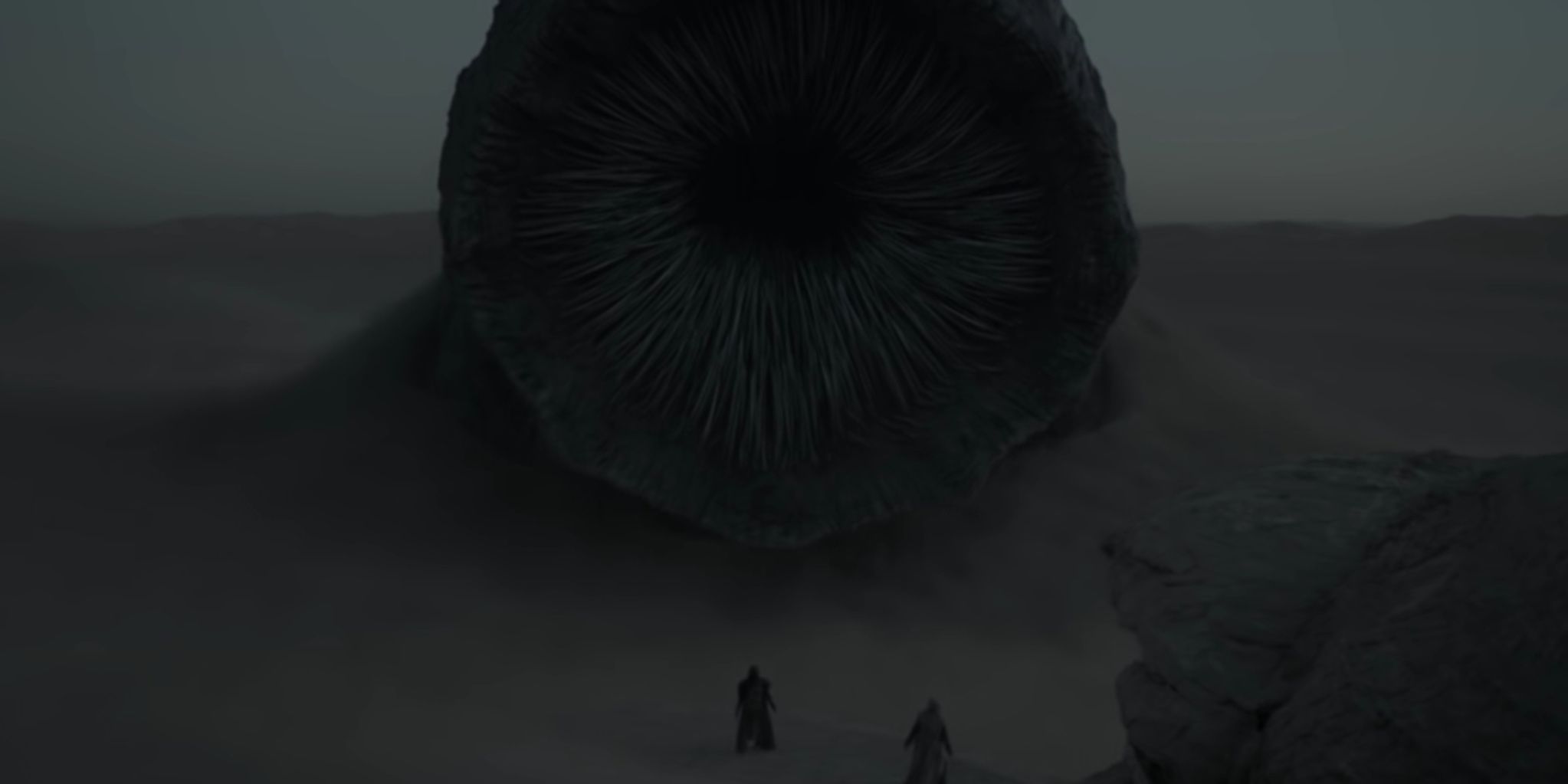Frank Herbert's landmark 1965 novel Dune, its five sequels, and its countless additional materials are among the most important works in the long history of science fiction. Despite its enormous influence, overwhelmingly positive reception, and multiple beloved adaptations, the number of people who've actually taken in the original works is shockingly low.
Denis Villeneuve's 2021 adaptation of Dune is unquestionably the best-received version of the work outside the original text. With its all-star cast, mind-boggling production, and masterful direction, it is an overwhelming success in adapting what was once thought to be unadaptable. With over $400 million in box-office returns and a hotly anticipated part 2 on the way, the franchise has a lot of new fans.
Those with even a passing familiarity with the plot of Dune will recall that it concerns the conflict between noble families over the planet Arrakis. Arrakis is an uninhabitable desert with year-round scorching heat and very little water. The native fauna is dominated almost entirely by sandworms, tunneling horrors the size of a dozen blue whales who will eat anything they encounter. The northern pole of the planet featured a somewhat survivable climate and favorable geographical circumstances, allowing for the construction of the planet's only city. The rest of its surface is the kind of environment that would almost guarantee death if stranded. This raises the obvious question, why is everyone fighting over this nightmare planet?
Thousands of years before the events of the narrative, a chemist under the employ of that era's empire discovered a unique substance he called melange, better known as the spice. The spice is a naturally occurring substance that can only be harvested from the unique conditions on Arrakis. It's created when the fungal secretions of the sandworm larvae mix with the water hidden miles beneath the surface. Explosive pressure shifting underground results in that substance firing toward the surface at high speeds. Once it ends up above ground, the immense heat, punishing sunlight, and bracing winds of Arrakis gradually shape it into melange. After that chemist discovered this natural wonder, it immediately became one of the most important resources in the galaxy.
But what does the Spice actually do? Simply put, it's an extremely powerful psychoactive narcotic that expands the user's physiological capabilities. Regular use of the spice can increase the life span by more than three times, leaving some people with staggering longevity. Only the extremely rich could use the spice regularly, but those who had that luxury got to go on living far beyond what should be possible. Regular spice usage doesn't just make humans live longer, it makes them live better. General health outcomes are vastly improved by regular spice usage, creating resistance to disease and the ability to heal from most injuries. One can always tell a hardcore spice user by their distinctive blue eyes.
Beyond those health benefits, the use of the spice melange has an even greater benefit. The drug can open the mind beyond what would normally be possible, granting superhuman capabilities to the user. The average user grows more aware, capable of hearing and seeing things far beyond what an unassisted human could perceive. The ultimate effect of the spice melange is the ability to see the future. Prescience isn't a common effect of the spice, it's the holy grail of its capabilities. Paul is the poster boy for this effect, it's the godlike capability that made him the hero of the tale. Beyond that example, the society of the franchise couldn't exist without the occasional outbursts of clairvoyance.
Space travel is tough in the world of Dune, but they've come up with a solution. Faster-than-light travel is a must-have for anyone with any hopes of being taken seriously in the galaxy. Dune's system for that common sci-fi trope is a drive that allows the user to effectively teleport to their destination. Doing so, however, renders traditional navigation impossible. The method they've chosen is Guild Navigators. These skilled and unusual figures have gained the spice's ultimate gift, and they use it to guide pilots in impossible conditions. By seeing into the future, they can allow faster-than-light travel without risk. This alone makes the spice melange the most important resource in the galaxy, as it's the only way to travel between planets without wasting years in transit.
There are downsides to the spice. It's extremely addictive, leading to crippling withdrawals for those who stop using. This creates a slavering demand from all those who aren't rich enough to hoard spice for themselves. The class consequences of spice mirror the grim history of colonialism that gave the melange its street name. Much like western nations destroyed and enslaved whatever they had to in the pursuit of spices, there is nothing that the warring families won't do to gain control of the spice.
The spice is one of the most interesting aspects of Dune's galaxy. From its psychic powers to its cultural ramifications, the only thing that remains certain is that the spice must flow.



